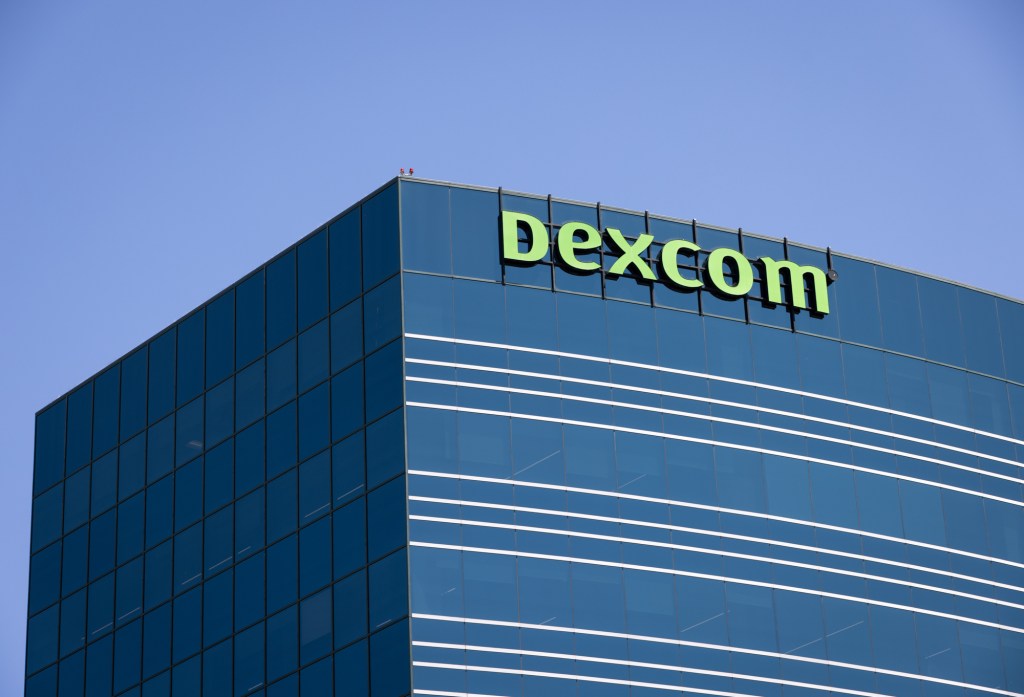Dexcom, the San Diego-based maker of continuous glucose monitors for diabetes patients and pre-diabetics, announced Wednesday that it is laying off around 350 workers, or 3% of its global workforce. Most of these reductions, or 196 people, are in San Diego, and of those, 134 are in operations and manufacturing.
“It was a difficult but important decision around reorganizing our team,” said Jake Leach, the company’s president and chief operating officer, who will become its CEO in January. “Dexcom has grown significantly over time, and we really took a pause, very thoughtfully looked at how we operate, and really wanting to make some changes so that we could move faster, be more agile, and meet the needs of this really large growing base of customers and new customers.”
Leach said these cuts will allow the company, which employs around 11,000 full-time workers globally — with around 2,000 of those in San Diego — to sharpen its focus on research and development, and scale to meet the needs of larger populations with a range diabetes and diabetes-related health concerns.
The decision aligns with a “long-term focus on sustaining our growth and really focusing on things that produce growth. It’s not a short-term thing. It’s very much based on a long-term focus.”
The cuts also align with the company’s shift away from operations and manufacturing locally. They build on a decision last year to cut 536 local jobs, move its manufacturing workforce to Arizona from San Diego and focus on research and development here.
One recent outcome of its R&D is a new 15-day version of its G7 monitor, which will be released in a few months, Leach said. That monitor will be wearable for longer — up from 10 days.
Down the pipeline, Dexcom is developing sensors for other biomarkers including ketones, which are made by the liver.
“Part of our need to expand our R&D lab space here in San Diego is to facilitate those future sensor projects,” Leach said. “There’s a lot of chronic diseases that are related to diabetes, or that have comorbidities — quite a few people who have kidney disease have diabetes. Same with liver disease.
“And some of those markers are important for managing those other chronic diseases, which is something we’ll be spending more time on.”
Most of the losses outside San Diego will be at other U.S. sites, with just a few outside the U.S., Leach added.
Leach said the company is helping impacted workers find other jobs.
Dexcom, founded in 1999, is a leading developer of continuous glucose monitors for Type 1 diabetes, an autoimmune disease that usually begins in childhood or adolescence. In contrast to finger stick tests, which check glucose, or blood sugar, at a given moment, these sensors are worn around the clock and alert the patient if blood sugar shifts dangerously.
More recently, within the past 10 years or so, the company’s research and products have broadened to reach patients with Type 2 diabetes, which develops differently from Type 1 and which is far more prevalent.
Dexcom also wants to serve pre-diabetics and people who monitor glucose for health and wellness reasons. Stelo, launched last year, is an over-the-counter monitor that helps its wearer “understand how food, activity, and other factors impact your glucose,” its website says.
“We’re seeing quite a broad spectrum of users,” Leach said of the Stelo sensor.
An investor report noted there is tremendous opportunity for glucose monitoring across populations.
Around 60% of people with Type 1 diabetes have continuous glucose monitors, and about half of the 2.4 million people who have Type 2 diabetes that can be treated with short-term intensive insulin therapy — a subtype of diabetes — have such monitors.
Only a quarter of the estimated 3 to 4 million people with a different kind of Type 2 diabetes, which can be addressed with a long-acting form of insulin, have continuous glucose monitors.
The market for pre-diabetes is even greater: almost 100 million people in the U.S., and only around 20% have been diagnosed, Leach said.
“So there’s this information gap that we’re trying to help people with, in terms of better understanding how diet and other lifestyle choices are impacting their glucose,” he said.
The company dealt with two recalls this year. One was for its G7, G6, One and One+ continuous glucose monitors, where in some cases the alarms were not loud enough. The other recall was tied to how users get alerted about glucose levels. Its website has information about checking if a replacement is needed.
In March, a routine inspection by the Food and Drug Administration led to a letter about Dexcom’s manufacturing processes. Leach said the company is “working closely with the FDA to resolve all their concerns.”
Dexcom’s net income in the second quarter was $179.8 million, up from $143.5 million a year ago. Revenue in the same quarter grew 15% to $1.157 billion, up from $1.004 billion.
The news was announced Wednesday after the close of markets, where Dexcom stock closed at $76.38, up 26 cents.
Originally Published: August 27, 2025 at 3:31 PM PDT
